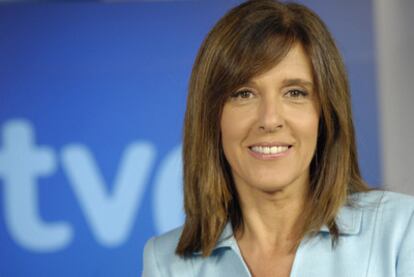UK's BBC better trusted than Spain's national broadcaster, says study
Spanish journalists admit to envy of the British model
Watching the BBC news is something of a tradition in the UK. The British broadcaster is deliberately impartial, offers quality reporting based on the notion of television as a public service, and the audience respects its output and journalists. Meanwhile, and despite the progress that's been made, people still feel that news programs on the Spanish state broadcaster TVE are more sympathetic to whichever government happens to be in place. The BBC is renowned for its independence, while TVE still labors under negative perceptions inherited from the past.
TVE and the BBC do also have things in common. Viewers of both public stations believe that they are less sensationalist than the private networks; they underscore their sober style (which runs the risk of being boring and monotonous), applaud their capacity for innovation and value their lack of advertising. Spectators of La 1, one of TVE's two channels, feel that political issues are treated more serenely than on other networks, while 80 percent of Britons are convinced that the BBC is quite neutral and even-handed.
The differences and similarities between the news programs on Britain and Spain's public stations were analyzed by a team from Valladolid University, made up of professors Jéssica Retis, María Lamuedra and Agustín García Matilla. Their study, Los informativos diarios en BBC y TVE (or, Daily newscasts on the BBC and TVE), was based on interviews conducted between 2007 and 2008 with producers, journalists and spectators of both corporations.
Their research explored how audiences and professionals perceive the concept of public service. Spanish spectators do not believe that TVE can live up to the ideals of veracity, impartiality and balanced information because "they are perfectly aware of the legacy of tendentiousness and manipulation" that the channel exercised in the past. But they do associate the station with cultural programming. Nearly half of respondents said that TVE (whose news programs have led the ratings for the last three years) does not offer a differentiated product from the commercial stations, and that "it seems to do the same thing, in a more moderate way."
Around 80 percent of respondents said that the BBC achieves its goal of providing a public service. "It creates programs for all sectors, shows an interest in topics of concern to people, and its programming is varied," says the report. Still, around a quarter of those surveyed said that the British station has become more commercial, sensationalist and superficial due to competition.
Still, TVE journalists are envious of the BBC's model, and admit that their own job is influenced "by a political system that has discredited television" and by the pressure of competition from other stations.
"BBC hosts do not try to entertain me, they try to tell me what is happening," says a British spectator in the study. Around 20 percent of respondents said that the BBC is more careful with the treatment of certain topics and very mindful (sometimes excessively) of political correctness. Nevertheless, some people criticized its subjective views on the Iraq war, terrorism or climate change.
The audience's views are strongly connected to the stations' financing system. The fee that Britons pay is "the tie that gives the public the right to demand quality television from the BBC." Other people feel that paying the fee is like throwing money away, citing the example of the comedy talk show Friday Night with Jonathan Ross , a host who gets paid six million pounds a year "for pure trash," said one respondent. "What a waste of money!"

Tu suscripción se está usando en otro dispositivo
¿Quieres añadir otro usuario a tu suscripción?
Si continúas leyendo en este dispositivo, no se podrá leer en el otro.
FlechaTu suscripción se está usando en otro dispositivo y solo puedes acceder a EL PAÍS desde un dispositivo a la vez.
Si quieres compartir tu cuenta, cambia tu suscripción a la modalidad Premium, así podrás añadir otro usuario. Cada uno accederá con su propia cuenta de email, lo que os permitirá personalizar vuestra experiencia en EL PAÍS.
¿Tienes una suscripción de empresa? Accede aquí para contratar más cuentas.
En el caso de no saber quién está usando tu cuenta, te recomendamos cambiar tu contraseña aquí.
Si decides continuar compartiendo tu cuenta, este mensaje se mostrará en tu dispositivo y en el de la otra persona que está usando tu cuenta de forma indefinida, afectando a tu experiencia de lectura. Puedes consultar aquí los términos y condiciones de la suscripción digital.




























































